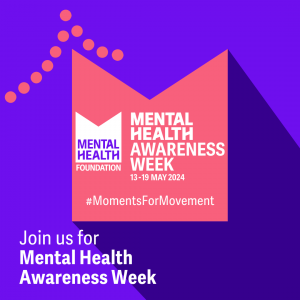Resilience is a crucial ingredient for our personal and professional success. Whether we’re facing setbacks in our career, dealing with personal challenges, or navigating unexpected obstacles, resilience can help us to bounce back stronger than ever before…
…it’s a word we hear a lot, but what exactly is ‘resilience’, why is it so vital and perhaps most importantly, how do we build resilience it into our own lives?
Understanding Resilience
Resilience is the ability to adapt and thrive in the face of adversity, challenges, and stress. It’s about being able to recover from setbacks, learn from failures, and maintain a positive outlook even in difficult situations. Resilient people are better equipped for when life comes along and blindsides them, helping them to cope with stress, overcome obstacles and achieve their goals.

Why Resilience Matters
Building resilience is essential for both personal and professional growth. At work, resilient people are more productive, adaptable, and better able to handle the pressures that naturally come with today’s modern professional environment. They’re also more likely to take on new challenges, innovate, and bounce back from setbacks, making them invaluable to any organisation.
On a personal level, resilience is equally important. It helps us navigate life’s ups and downs with grace and strength, enabling us to overcome obstacles, cope with stress, and maintain our mental and emotional wellbeing.
How to Build Resilience
By this point, we all get just how important resilience is to us both at work and in our personal life, yet the tough part can be implementing strategies that consciously help us to develop our resilience reserves:
Download my ten point plan to build your resilience now
1. Cultivate a Growth Mindset
Embrace challenges as opportunities for growth and learning. Instead of viewing setbacks as failures, see them as valuable lessons that can help you become stronger and more resilient. We often hear only the basics of what it takes to have a Growth Mindset; read more about why it is so important and then, read more about how to develop one!
2. Build Strong Relationships



Be mindful about who you give your time to, and who you allow to build you up or – even unknowingly – tear you down. Surround yourself with supportive friends, family members, and colleagues who uplift and encourage you. Cultivating strong social connections can provide a valuable source of support during difficult times.
3. Develop Self-Awareness
Take the time to reflect on your thoughts, emotions, and behaviours. By understanding your own strengths and weaknesses, you can better navigate challenges and make more informed decisions based more on objective fact than subjective feeling. We often enter into automatic thought patters that can be hugely damaging for our resilience (negative thought spiralling, sound familiar?). Read more about how to control negative thinking to get to a place of heightened self-awareness.
4. Set Realistic Goals
Break down your goals into manageable, bite-sized priorities and tasks and crucially, celebrate your progress along the way! By setting realistic expectations for yourself, you can avoid feeling overwhelmed and maintain a sense of control over your life, especially when so much of it might feel outside of your control.
5. Practice Self-Care
Take care of your physical, mental, and emotional wellbeing. Make time for activities that bring you joy and relaxation, such as exercise, mindfulness, hobbies and spending time with loved ones.
Self-care isn’t selfish. We can’t be take care of anyone else if we are not taking care of ourselves. Read more about the importance of self-care and how to implement it.



6. Ask for Support
Don’t be afraid to reach out for help when you need it. Whether it’s talking to a trusted friend, seeking guidance from a mentor or seeking professional support reaching out for support is a huge sign of bravery and courageousness, not weakness.
7. Adapt to Change
It’s no longer just death and taxes that we can count on in life, it’s constant change too! Embrace change as a natural part of life and focus on what you can control. Instead of resisting change, look for opportunities to adapt and grow in new and unexpected ways. Change can bring up a variety of weird and not-so-wonderful feelings and emotions in us. Read more about how to cope with change.
8. Practice Gratitude



Cultivate an attitude of gratitude by focusing on the positive aspects of your life. Take time each day to reflect on the things you’re thankful for, no matter how small, and notice how it can shift your perspective and boost your resilience.
We are often so busy living in the past, thinking about what has been and gone, or living in the future thinking about what is to come. Read more about how to live more in the present by being grateful.
Building resilience is a lifelong journey that requires practice, patience, and perseverance, yet it also requires us to make conscious changes and take action. In doing so, we can strengthen our resilience-reserves and thrive in the face of adversity.
The topic of ‘resilience’ is huge and just from these pointers alone, encompasses so much (and more!). Put some time aside to find other support here and have a look at the articles linked to above, then ask yourself: what’s one tiny change you can make to build a difference to your resilience, for the good of your personal and professional development?
Take the first step today and start building your resilience for a brighter, more resilient tomorrow.








